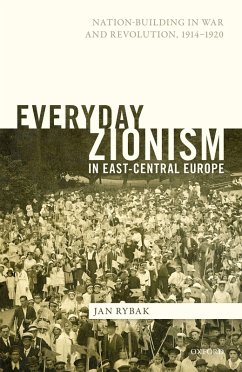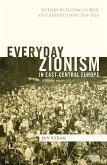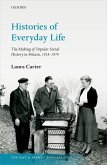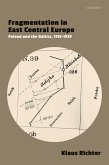Everyday Zionism examines Zionist activism in East-Central Europe during the years of war, occupation, revolution, the collapse of empires, and the formation of nation states in the years 1914 to 1920. Against the backdrop of the Great War?its brutal aftermath and consequent violence?the day-to-day encounters between Zionist activists and the Jewish communities in the region gave the movement credibility, allowed it to win support and to establish itself as a leading force in Jewish political and social life for decades to come. Through activists' efforts, Zionism came to mean something new: Rather than being concerned with debates over Jewish nationhood and pioneering efforts in Palestine, it came to be about aiding starving populations, organizing soup-kitchens, establishing orphanages, schools, kindergartens, and hospitals, negotiating with the authorities, and leading self-defence against pogroms. Through this engagement Zionism evolved into a mass movement that attracted and inspired tens of thousands of Jews throughout the region. Everyday Zionism approaches the major European events of the period from the dual perspectives of Jewish communities and the Zionist activists on the ground, demonstrating how war, revolution, empire, and nation held very different meanings for people, depending on their local circumstances. Based on extensive archival research, the study shows how during the war and its aftermath East-Central Europe saw a large-scale nation-building project by Zionist activists who fought for and led their communities to shape for them a national future.
Dieser Download kann aus rechtlichen Gründen nur mit Rechnungsadresse in A, B, BG, CY, CZ, D, DK, EW, E, FIN, F, GR, HR, H, IRL, I, LT, L, LR, M, NL, PL, P, R, S, SLO, SK ausgeliefert werden.









